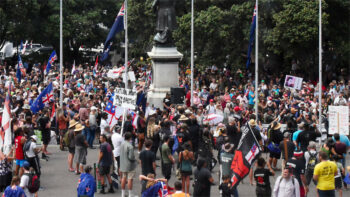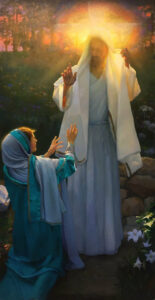Life, Death and Protests

By Fr Patrick Brophy SM
The other day I walked down to the centre of the city from the Messenger office. My route took me past Parliament. It so happened – unbeknown to me – there was a cavalcade of vehicles gathering there – it was the so called ‘anti-mandate’ convoy and protest. I spotted banners against the use of 1080 poison, in favour of Donald Trump for president (of the USA), against Jacinda Adern as Prime Minister, (of New Zealand!), in support of a small political party, others doubting the existence of Covid-19 and some railing against “the lies of the media”. The common protest was against the mandating of the Covid-19 vaccine for certain workers and the ensuing restrictions around some activities for the unvaccinated.
The protest illustrates the culture of fear and uncertainty that has emerged while we, and the world, struggle against Covid. Globally, nearly 6 million people have died from the disease. More will die, economies, both national and personal, are being destroyed, people are suffering illness beyond the initial infection: it is a serious disease. New Zealand has largely been spared the worst effects of this pandemic at some economic and human cost. However, many individuals and their families have been and will be impacted. We live in sobering, divisive, and somewhat scary times.
What does our Faith have to offer us in the face of this situation? This month we celebrate Easter. Jesus has risen from among the dead. The resurrection of Jesus gives us hope. We are filled with joy as we celebrate Christ’s victory over the tomb, even as we live these sombre and uncertain days. Lent reflects the sadness and uncertainty of moments of our lives – sin and personal failure, human conflict, human and natural disasters, even disease and pandemics.
 As we have prepared for the events of Holy Week during the 40 days of Lent, so Easter-time gives us 40 days of celebration and reflection on what the Lord’s resurrection means for us.
As we have prepared for the events of Holy Week during the 40 days of Lent, so Easter-time gives us 40 days of celebration and reflection on what the Lord’s resurrection means for us.
Jesus has truly risen. His body is no longer in the tomb. Our cover and centrepiece (p22-23) illustrate the luminous moment when the risen Lord vacates the tomb.
Over the weeks of Eastertide Jesus will appear to his disciples and others. It’s of note that when the Risen Lord appears to his disciples, they don’t recognise him. He is different, on another plane, even. He is still human and proves it by eating a hearty breakfast of fish, but he is different, transformed. Somehow though, his divinity shines through. He is no longer limited by the physical, no longer limited by time and space. The disciples do recognise him eventually, by his actions and words. His nature shines through, but it’s a transformed nature. As Emeritus Pope Benedict says in Jesus of Nazareth, Holy Week: He has “revealed a new dimension of reality”.

The Resurrection, Peter Adams
After the Resurrection, humankind has hope of new life, not a restored or old life, but new life. Amid the fear, uncertainty, and conflict, and even sickness and impending death, we can be sure by our faith that something greater awaits us. Jesus has shown us this, he has opened the way for us to follow, as we all will do sooner or later. Meanwhile, the anticipation of such a life fills us with joy; a life without fear or worry.
This doesn’t mean we are ‘joy germs’, ignoring the very real human suffering around us. Nor does it mean we risk our present life in the hope of that future life. Our life is God’s gift – as is eternal life. We should not ignore or disdain the gift of life, but rather treasure it and safeguard it. We must take all reasonable measures to protect ourselves and others from anything that might diminish or prematurely end our lives.
As an Easter people we know that a better, free and joyful life awaits us. Jesus has opened the way for us by defeating death and rising to new life. We live in hope. He is risen, Alleluia.
 Entries(RSS)
Entries(RSS)